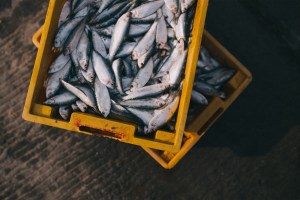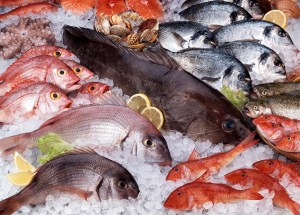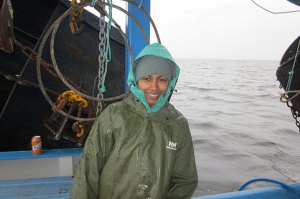Tag: Elsie Sunderland
-
Health
Eating our way to a sustainable future
Author Paul Greenberg said eating more and different seafood, emphasizing species that are less energy-intensive to harvest and high in omega-3 fats, can help answer the world’s food challenges in the coming decades.

-
Health
Study tracks mercury sources in seafood
Harvard researchers have mapped geographic sources of methylmercury in seafood, with tuna and shrimp big factors.

-
Campus & Community
Inquiring minds rewarded
Ideas in language, health, and astronomy are winners in this year’s Star Family Challenge, a grant that funds high-risk, high-reward research.

-
Nation & World
Focus on the future of food
At the Global Food+ 2017 summit, a panel heard 24 capsule discussions on the future of food in key areas, along with concerns about how to feed the world.

-
Health
Unsafe levels of toxic chemicals found in drinking water of 33 states
A Harvard Chan School study has found that drinking-water samples near industrial sites, military fire-training areas, and wastewater-treatment plants have the highest levels of fluorinated compounds, which have been linked with cancer, hormone disruption, high cholesterol, and obesity.

-
Campus & Community
Looking indoors to health
Harvard’s University Construction Management Council is celebrating its 10th year and forging ahead on projects such as acting to remove flame retardants and other toxic chemicals from building interiors.

-
Science & Tech
Poison in Arctic and human cost of ‘clean’ energy
The amount of methylmercury, a potent neurotoxin, is especially high in Arctic marine life but until recently, scientists haven’t been able to explain why. Now, research from the Harvard suggests that high levels of methylmercury in Arctic life are a byproduct of global warming and the melting of sea-ice in Arctic and sub-Arctic regions.



